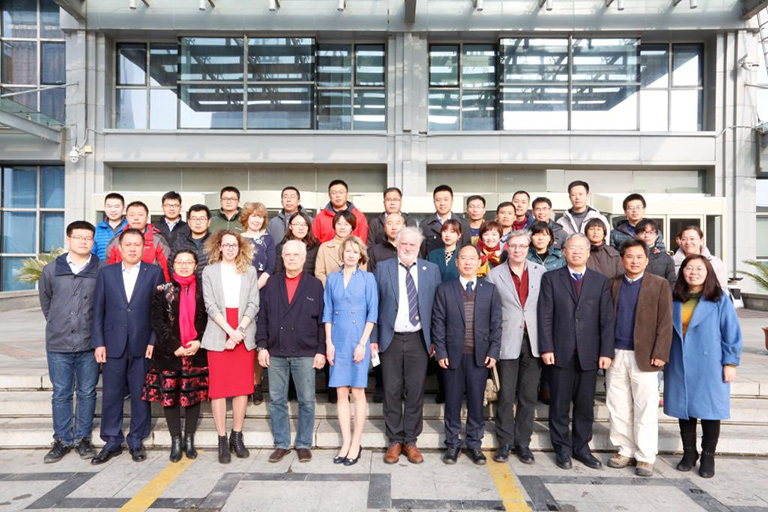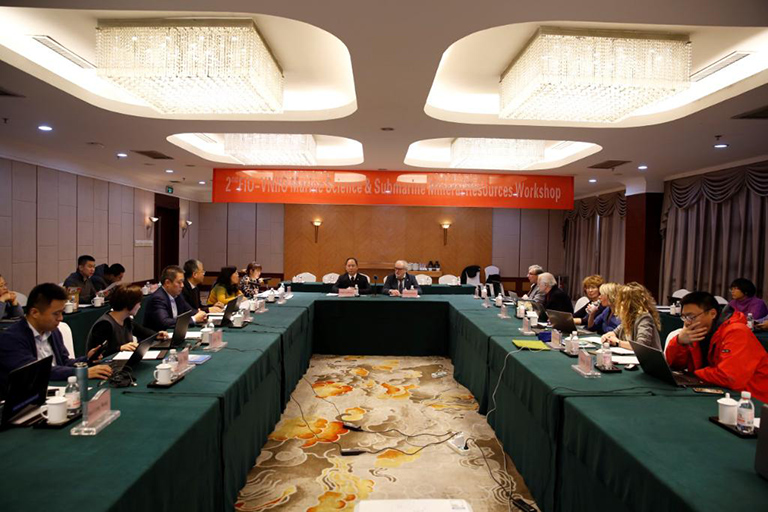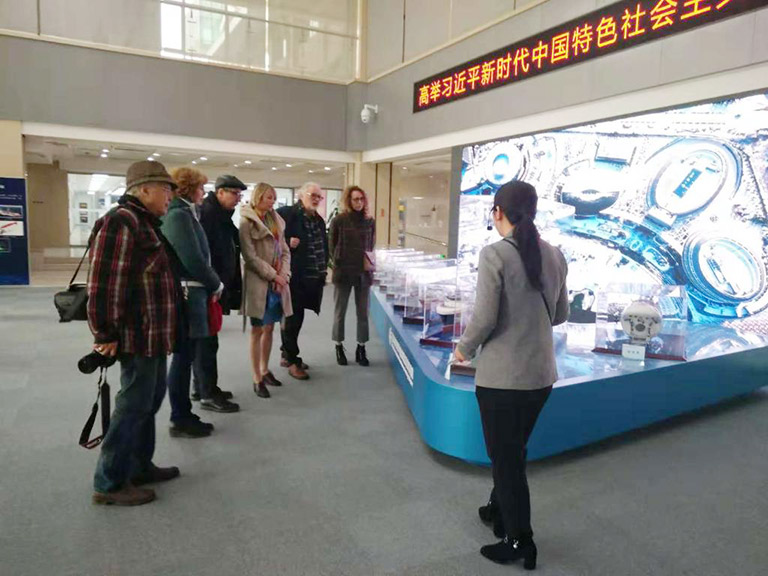The 2nd FIO-VNIIO Marine Science and Submarine Mineral Resources Workshop held in Qingdao
On December 6, the First Institute of Oceanography (FIO) and the All-Russian Research Institute of Geology and Mineral Resources of the World Ocean (hereinafter referred to as "VNIIO") held the Second FIO-VNIIO Marine Science and Submarine Mineral Resources Workshop in Qingdao. Over 40 experts and scholars from the two institutes attended the workshop. Wang Zongling, Deputy Director of FIO, and George Cherkashov, Deputy Director of VNIIO addressed at the opening ceremony. The workshop was hosted by Shi Xuefa, chief of the Lab of Marine Geology, and Geophysics, and George Cherkashov. The two parties had heated discussions and exchanges on the mineralization of polymetallic sulphides, ferromanganese crusts, and other seabed minerals, deep-sea mining and its environmental impacts, polar geology.
Located in St. Petersburg, Russia, VNIIO is a research institute specialized in marine geology and mineral resources under the administration of the Russian Ministry of Natural Resources. It has strong scientific research strength, especially in ocean mineral resources, polar mineral resources, and polar geology, and has achieved systematic research results at a high level. Since 2006, FIO has practically and substantially cooperated with VNIIO in collaborated researches and personnel exchanges, and has made a series of achievements in the mineralization of hydrothermal sulphides and the genesis of cobalt-rich crusts on slowly spreading oceanic ridges. The memorandum of understanding between the two institutes was renewed in June 2017. In November 2017, Li Tiegang, Director of FIO invited a Russian delegation to pay a visit and held the First FIO-VNIIO Marine Science and Submarine Mineral Resources Workshop, at which academic exchanges on deep-sea polymetallic mineralization were conducted and cooperation in the deep-sea geological processes and mineral resources was discussed.
The Second FIO-VNIIO Workshop presents the bilateral achievements in the past year, further advances the detailed discussion on cooperation projects including deep-sea polymetallic mineralization, deep-sea investigation techniques and methods, and environmental impacts of deep-sea mining, and identifies the cooperation priorities in the coming period.
During the tour to Qingdao, the Russian delegation also visited the Pilot National Laboratory for Marine Science and Technology (Qingdao) and exchanged views with its Department of International Affairs and Planning & Coordinating Department for Scientific Activities.
|





